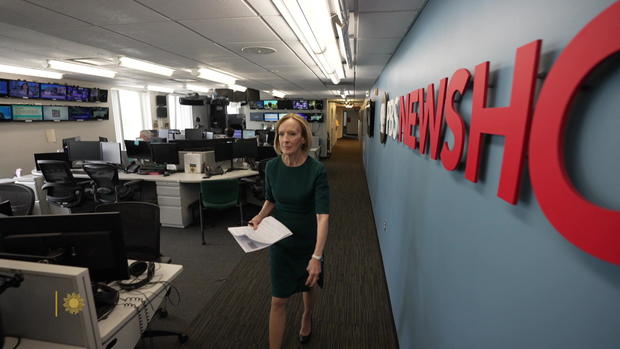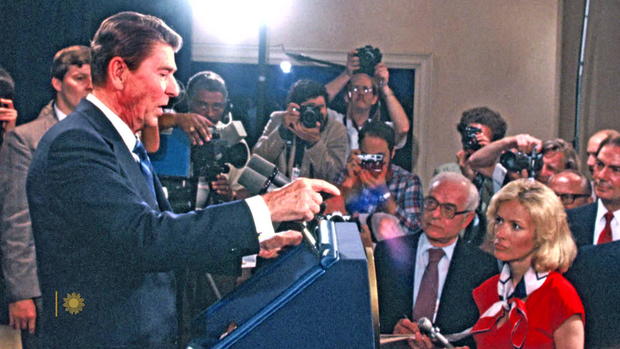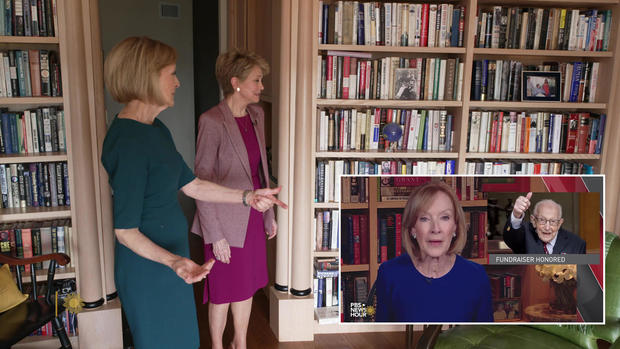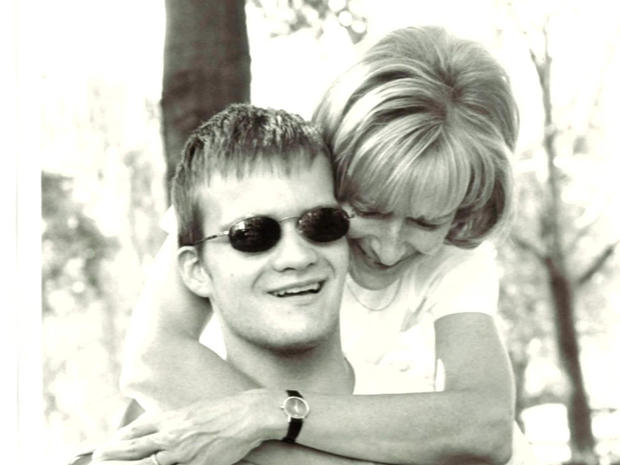Judy Woodruff tells of a producer during her early days at a CBS affiliate in Atlanta, who instructed her, “Nobody gives a damn what Judy Woodruff thinks. When you go out to cover a story, they want to know what you learned.’ And that was ingrained in my head, that I wasn’t supposed to be part of the story.”
But this past Friday night, the anchor and managing editor of “PBS NewsHour” was the story, when she announced that she will step down from the anchor desk by the end of this year. Not beginning retirement, but a new chapter.
“I’m not retiring, not doing the R-word,” she told “Sunday Morning” anchor Jane Pauley. “I will end my anchoring time covering politics in the United States, but what I hope to do is cover America.”
CBS News
Judy Woodruff is a singular figure among her peers. Soft-spoken and mild-mannered, always respectful, but relentless.
She said, “I will tell you, Jane, I still get nervous sometimes when I’m interviewing a newsmaker. And I think it’s a good sign because it means that I’m thinking, my heart’s pounding, I may be sweating a little bit.”
That drive and determination come from a grandmother who worked three jobs to support a family, and her mother, who never finished high school.
“She said to me, ‘You’re gonna get an education. You’re gonna go to college,'” Woodruff said. “And I was gonna get that education.’ So, it was just a given.”
In 1968, with a political science degree from Duke, Woodruff got a job in the newsroom of WQXI in Atlanta, as a secretary. Woodruff recalled her meeting with the news director: “We had this long conversation. And then at the end, he said, ‘Okay, Okay. You know, you have the job.’ So, as I get up to leave, and I say, you know, ‘Thank you,’ he said, ‘Well, of course. How could I not hire somebody with legs like yours?’
“As I think about that moment, I think, ‘Why didn’t I just turn on my heel and say, you know, ‘Guess what?'”
Pauley asked, “But if you had, you know, who would I be talking to right now?”
“I wouldn’t have the job.”
Advancing quickly from “weather girl” to local politics, to network news, joining a generation of trailblazers, including Rita Braver, Andrea Mitchell, Lesley Stahl, Martha Teichner, and the late Gwen Ifill. “We are tough broads,” Woodruff laughed. “We’re not going away quietly into the night. I think this generation of women, whatever it was in our DNA, or whatever our mothers or fathers told us, ‘You know, there’s nothing you can’t do.'”
CBS News
And things she could never have imagined. March 30, 1981, outside the Washington Hilton, White House correspondent Judy Woodruff waited for President Reagan. “I was maybe 20 feet on this side,” she recalled. “And suddenly, you hear this, Pop, pop, pop. And I could see people lying on the ground.”
History is made in a moment.
Another notable moment from her career: moderating the Lloyd Bentsen-Dan Quayle vice presidential debate in 1988, when Bentsen said to his opponent, “Senator, you’re no Jack Kennedy.” “At which point, the room just explodes,” Woodruff said. “The room absolutely explodes. And of course, what happened was, the Dukakis-Bentsen ticket lost in a big way to Bush-Quayle!”
Like most of us, during the pandemic Woodruff worked from home. She showed Pauley her library, from which she anchored the “NewsHour” for over a year – bringing some 2 million viewers home, too.
CBS News
Pauley asked, “You kept it together; how does someone do that?”
“I had to be together, I had to be holding it together, because there was just so much at stake,” Woodruff replied.
Politics is her passion, but not her only one. She is an advocate for people with disabilities. Now 41, her first son, Jeffrey, was born with a mild case of spina bifida. But at 16, a surgical procedure went catastrophically wrong. Jeffrey was left unable to walk, and with permanently impaired vision, hearing and speech.
Family Photo
Woodruff said, “Until you have a loved one who is in a special place, especially hard place, you can’t really know. But he’s taught me that people with disabilities are people. They’re just like us. They have feelings, they have heart.”
Few people have had a perspective on America as long and as comprehensive as Judy Woodruff.
And she sees America in peril. “In all the years I’ve covered politics, we’ve been divided. Republicans and Democrats disagree with each other. We debate each other – I say we. I put myself in the middle, they debate one another, we’ve covered it.”
And at 75, she will tell you what Judy Woodruff thinks: “Now, we’re at a point where we just seem to be on the verge on some kind of, you know, hopefully not a war where people are shooting weapons, but where people are shouting really –”
“You said, ‘Hopefully’?” asked Pauley.
“Hopefully. We are in a really angry moment in this country.”
After 13 years she’ll be stepping off the anchor desk, eager to be a reporter again. “I’d like to understand why we are so divided as a country, why we are having such a hard time talking to each other, how did we get to this place, and why we are here where we are right now, and can we heal?”
For more info:
Story produced by Gabriel Falcon. Editor: Joseph Frandino.



